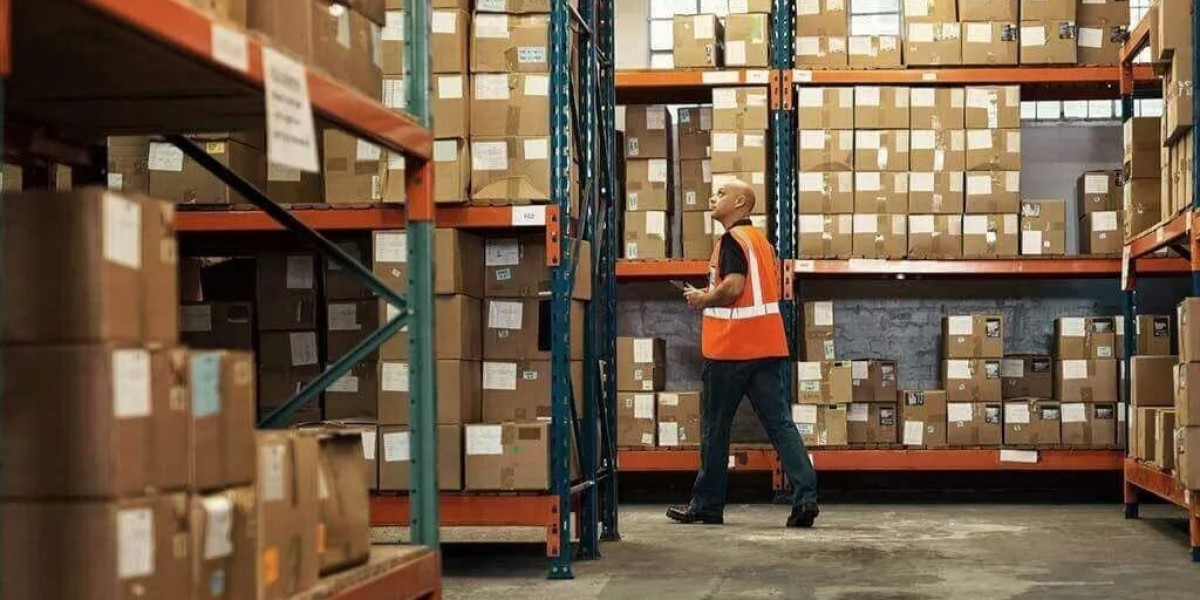Wholesale distributors play a pivotal role in the supply chain by acting as intermediaries between manufacturers and retailers or end consumers. By purchasing goods in large quantities directly from manufacturers and distributing them to smaller businesses or consumers, Distributors help streamline product availability, reduce costs, and support a variety of industries globally. Understanding their operations, roles, and benefits is crucial for businesses looking to improve efficiency and reach in their respective markets.
What is a Wholesale Distributor?
A wholesale distributor is a company that purchases products in bulk directly from manufacturers and sells them to other businesses, such as retailers or service providers, at a higher price. They act as a middleman between the manufacturer and the customer, ensuring that goods are readily available for sale. Distributors typically operate in a broad array of industries, including food and beverage, electronics, textiles, automotive, and consumer goods.
Wholesale distributors are crucial because they allow smaller businesses to access a range of products without needing to establish relationships with multiple manufacturers. This, in turn, enables smaller businesses to offer a broad inventory of products while minimizing their financial risk and operational complexities.
The Role of Wholesale Distributors
Wholesale distributors perform several key roles within the supply chain. Here are some of the main functions:
1. Bulk Purchasing
Wholesale distributors usually buy products in large quantities, which provides them with the leverage to negotiate lower prices from manufacturers. They can then pass on these savings to their clients, making it possible for smaller businesses to purchase goods at prices they couldn’t afford directly from the manufacturer.
2. Warehousing and Inventory Management
One of the critical functions of wholesale distributors is managing large inventories of products. They maintain warehouses where goods are stored before being shipped out to retailers or customers. By handling warehousing and inventory management, distributors allow retailers to avoid the high costs of maintaining their own storage facilities.
3. Transportation and Delivery
Distributors often own or partner with third-party logistics companies to transport products from the manufacturer’s facility to their warehouses and eventually deliver them to retailers. This ensures that goods reach their destinations on time and in proper condition. The efficient distribution of products is key to maintaining smooth operations throughout the supply chain.
4. Market Expansion
For manufacturers, partnering with wholesale distributors is an effective way to reach new markets and customers without having to invest in local sales operations. Distributors often have established networks of businesses that rely on them for product sourcing. This means manufacturers can quickly gain access to new regions or industries by working with the right distributor.
5. Risk Management
Distributors can help mitigate financial risk by purchasing products in bulk. Instead of retailers having to buy large quantities of inventory upfront, they can place smaller orders from the distributor. This reduces the capital required by retailers and ensures they don’t face the risk of overstocking or holding onto unsold inventory.
Types of Wholesale Distributors
Us Wholesale Vendors distributors come in several forms, depending on the industry they serve and the services they provide. These can include:
1. Merchant Wholesalers
Merchant wholesalers buy and own the goods they distribute. They operate on a buy-and-sell model, purchasing inventory from manufacturers and reselling it to retailers or other businesses at a marked-up price. These types of wholesalers bear the risk of holding unsold inventory.
2. Agents and Brokers
Agents and brokers typically don’t take ownership of the products they sell. Instead, they act as intermediaries between manufacturers and customers. They earn a commission on each sale they facilitate but don’t bear the risks associated with holding inventory.
3. Specialty Distributors
Specialty distributors focus on specific product categories or niche markets. For example, a distributor may specialize in electronics or medical equipment. These distributors typically provide a higher level of expertise in their product category, making them an attractive partner for businesses that require a deep understanding of the products they are buying.
4. Drop Shippers
Drop shipping distributors don’t store inventory themselves. Instead, when a retailer sells a product, the distributor ships it directly from the manufacturer to the customer. This model is popular in the e-commerce industry as it minimizes the retailer’s investment in inventory and warehousing.
5. Wholesale Distributors with Value-Added Services
Some wholesale distributors provide additional services, such as product customization, packaging, and assembly. These distributors help enhance the product offering for retailers and provide more flexibility for customers looking for specialized services.
Benefits of Working with Wholesale Distributors
There are numerous advantages for businesses that choose to work with wholesale distributors. Below are the key benefits:
1. Cost Savings
Wholesale distributors typically buy goods in large quantities, which gives them the leverage to negotiate lower prices. By purchasing products from distributors, businesses can avoid the high costs of purchasing directly from manufacturers, such as bulk ordering and storage expenses. This can help businesses maintain a competitive pricing strategy and increase their profit margins.
2. Access to a Broader Range of Products
Distributors offer businesses access to a wide range of products from multiple manufacturers. Retailers, for example, can offer a variety of goods without needing to source them individually from different manufacturers. This broad product selection can help businesses attract more customers by offering a diverse inventory.
3. Faster Delivery Times
Wholesale distributors often have established logistics networks, which enable them to deliver products quickly and efficiently. By working with distributors, businesses can avoid long shipping times from manufacturers and reduce delays in product availability.
4. Reduced Risk
By outsourcing inventory management and purchasing, businesses can reduce their risk. If demand for a particular product drops, they don’t have to worry about being stuck with excess stock. Distributors are often better equipped to handle inventory fluctuations and can adjust their stock based on changing market conditions.
5. Expert Knowledge and Support
Distributors often have deep knowledge of the products they distribute. They can provide valuable insights into market trends, product specifications, and consumer preferences, which can be incredibly helpful for businesses looking to stay competitive. Some distributors also provide technical support, warranty services, and product training to help businesses better serve their customers.
How to Choose the Right Wholesale Distributor
Selecting the right Amazon Fba Distributors is a crucial decision for any business. Below are some factors to consider when making this choice:
1. Product Range
Consider the variety of products offered by the distributor. Do they offer the products that align with your business needs? A broad range of products can provide your business with more flexibility, but it's also important to ensure that the distributor’s inventory matches your market's demand.
2. Reliability and Reputation
It's essential to partner with a distributor known for reliability and professionalism. Research the distributor's reputation in the industry by reading reviews, asking for references, and assessing their track record in delivering goods on time and in proper condition.
3. Pricing Structure
Make sure the distributor’s pricing aligns with your business model. Look for distributors that offer competitive pricing and flexible payment terms. It’s important to understand all costs involved, including shipping fees and handling charges, to ensure your profit margins remain intact.
4. Logistics and Shipping Capabilities
Check the distributor’s shipping times and their ability to handle large orders efficiently. If your business requires fast turnaround times or international shipments, ensure the distributor has the infrastructure in place to meet these demands.
5. Customer Support
A good distributor should provide excellent customer service. Whether it’s helping with inventory issues, handling returns, or providing product knowledge, having reliable support can make all the difference in your business operations.
Conclusion
Wholesale distributors are an integral part of the supply chain, offering valuable services that help businesses access products, streamline operations, and reduce costs. By understanding the role and benefits of Wholesale Extracts Flavorfrenzy distributors, companies can build more efficient supply chains, enhance their product offerings, and expand their market reach. Whether you’re a small business or a large corporation, partnering with the right wholesale distributor can be a game-changer, helping your business stay competitive and thrive in a dynamic market.







